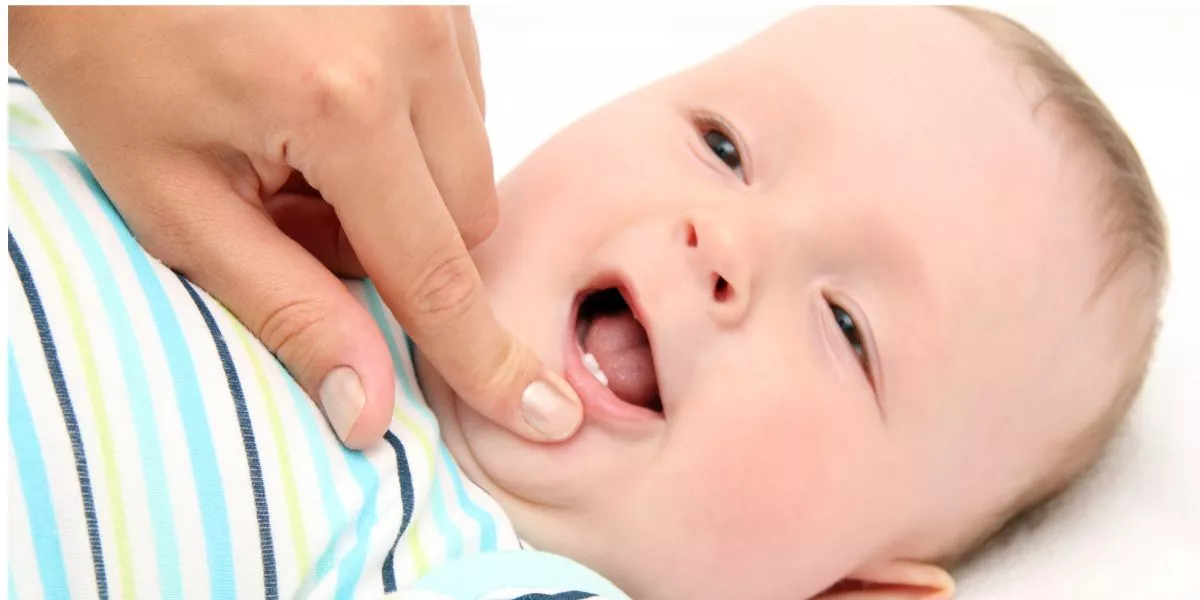What Are the Signs That Your Baby Is Teething?

When your baby starts teething, you might notice several signs that indicate discomfort. Increased drooling, frequent chewing on toys or fingers, irritability, and changes in sleep patterns can all signal this development. As you observe these behaviors, it’s important to understand what they mean and how to provide comfort. But what specific steps can you take to ease your baby’s teething pain?
Increased Drooling
When your baby starts teething, you might notice an increase in drooling. This happens because teething stimulates the salivary glands, causing them to produce more saliva.
You may find that your little one’s clothes, bibs, or even toys are soaked in drool. This is completely normal and often occurs several weeks before the teeth actually break through the gums.
While it can be messy, it’s a sign that your baby’s body is preparing for new teeth. To manage the drooling, keep a cloth handy to wipe your baby’s chin frequently, preventing irritation or rashes.
It’s also helpful to change wet clothing promptly to keep your baby comfortable. Remember, this phase will pass as your baby’s teething progresses.
Chewing and Biting
As your baby’s teeth start to move closer to breaking through the gums, you may notice an increase in chewing and biting behaviors.
Your little one might start gnawing on anything within reach, from toys to your fingers. This instinctive reaction helps relieve some of the discomfort caused by emerging teeth.
It’s essential to provide safe options for your baby to chew on, such as teething rings or soft, cool foods. These items can soothe sore gums and redirect their biting tendencies away from non-food items.
Keeping an eye on your baby during this phase is crucial, as they might also explore new textures and flavors, which can be an exciting part of their development.
Irritability and Fussiness
Teething can make your baby feel irritable and fussy, often leaving you wondering how to soothe them. You might notice your little one crying more than usual or having difficulty settling down.
This fussiness can stem from the discomfort of emerging teeth, which can cause pain in their gums. Your baby may also become clingy, wanting extra cuddles and attention.
To help ease their irritability, try massaging their gums gently with a clean finger or offering a chilled teething ring.
Distracting them with toys or engaging in gentle play can also help lift their spirits.
Changes in Sleep Patterns
Along with increased irritability, you might notice changes in your baby’s sleep patterns during teething. Your little one may struggle to settle down at night, waking more frequently than usual.
The discomfort from emerging teeth can disrupt their natural sleep cycle, making it harder for them to stay asleep. You might find that they’re waking up crying or fussing, prompting you to comfort them more often.
Naps may also become shorter and less predictable. It’s essential to be patient during this phase, as these sleep disturbances are temporary.
Creating a soothing bedtime routine can help ease your baby into sleep despite the discomfort. Remember, consistency and comfort can make a big difference in helping your baby through this challenging time.
Conclusion
In conclusion, keeping an eye out for signs of teething can help you support your baby during this challenging time. If you notice increased drooling, frequent chewing, irritability, or changes in sleep patterns, it’s likely that those little teeth are on their way. Remember, offering comfort and appropriate teething aids can make a big difference. Trust your instincts as a parent, and don’t hesitate to reach out to your pediatrician if you have concerns.
